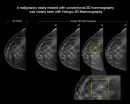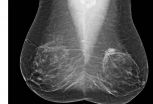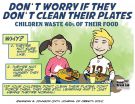Alcohol abuse linked to newly identified gene network
2014-12-02
(Press-News.org) AUSTIN, Texas -- Researchers at The University of Texas at Austin have identified a network of genes that appear to work together in determining alcohol dependence. The findings, which could lead to future treatments and therapies for alcoholics and possibly help doctors screen for alcoholism, are being published this week in the journal Molecular Psychiatry.
By comparing patterns of genetic code from the brain tissue of alcoholics and nonalcoholics, the researchers discovered a particular set of genes co-expressed together in the individuals who had consumed the most alcohol. Specifically, certain sets of genes were strongly linked as networks in alcoholics, but not in nonalcoholics.
"This provides the most comprehensive picture to date of the gene sets that drive alcohol dependence," said R. Adron Harris, director of The University of Texas at Austin's Waggoner Center for Alcohol and Addiction Research. "We now have a much clearer picture of where specific traits related to alcohol dependence overlap with specific expressions in genetic code."
Scientists have known for some time that genetics play a role in alcoholism and addiction and that the tendency for dependence to be genetically linked is more complicated than the presence or absence of any one gene. The new research, however, represents the first time scientists used revolutionary bioinformatics technology of RNA sequencing to identify the specific group of different genes that, expressed together, are highly correlated with alcohol dependence.
"We hope our model can serve as a type of Wikipedia of alcohol dependence, helping to break down the complexities of alcohol dependence and becoming a reference for future research into drug therapies," said Sean Farris, a postdoctoral fellow also at the Waggoner Center and lead author of the study.
Only three drugs have approval from the Food and Drug Administration to treat alcoholism, and none offers a silver bullet in helping people dependent on alcohol end their addiction. The identification of genetic factors and networks in the brains of alcoholics gives drug researchers more information to work from and may one day allow for better screenings to evaluate a person's risk factors for alcohol dependence, possibly even before the onset of heavy drinking.
INFORMATION:
Authors of the study in addition to Farris are lead research scientist R. Dayne Mayfield of the Waggoner Center; bioinformatician Dhivya Arasappan of the Center for Systems and Synthetic Biology; Scott Hunicke-Smith, director of the Genomic Sequencing and Analysis Facility; and Harris, director of the Waggoner Center. All are from the university's College of Natural Sciences.
Support for the research came from the National Institute on Alcohol Abuse and Alcoholism, with funding through the American Recovery and Reinvestment Act of 2009.
ELSE PRESS RELEASES FROM THIS DATE:
2014-12-02
CHICAGO - According to a new long-term study, diabetic patients with even mild coronary artery disease face the same relative risk for a heart attack or other major adverse heart events as diabetics with serious single-vessel obstructive disease. Results of the study were presented today at the annual meeting of the Radiological Society of North America (RSNA).
Researchers at the University of British Columbia and St. Paul's Hospital in Vancouver analyzed data from the Coronary CT Angiography Evaluation For Clinical Outcomes: An International Multicenter (CONFIRM) Registry, ...
2014-12-02
CHICAGO - A major new study being presented at the annual meeting of the Radiological Society of North America (RSNA) has found that digital breast tomosynthesis, also known as 3-D mammography, has the potential to significantly increase the cancer detection rate in mammography screening of women with dense breasts.
Breasts are considered dense if they have a lot of fibrous or glandular tissue but not much fatty tissue. Research has shown that dense breasts are more likely to develop cancer, a problem compounded by the fact that cancer in dense breasts can be difficult ...
2014-12-02
CHICAGO - A study of breast cancers detected with screening mammography found that strong family history and dense breast tissue were commonly absent in women between the ages of 40 and 49 diagnosed with breast cancer. Results of the study were presented today at the annual meeting of the Radiological Society of North America (RSNA).
"Screening recommendations for this age group continue to be debated," said Bonnie N. Joe, M.D., Ph.D., associate professor in residence and chief of women's imaging at University of California, San Francisco (UCSF). "Recent publications ...
2014-12-02
CHICAGO - Patients value direct, independent access to their medical exams, according to a new study presented at the annual meeting of the Radiological Society of North America (RSNA).
Fragmentation of health information among physicians, healthcare institutions or practices, and inefficient exchange of test results can decrease quality of care and contribute to high medical costs. Improving communications and giving patients more control over their care are critical goals of health IT initiatives.
"Easy and timely electronic access to an online unified source of ...
2014-12-02
Disparities in mental-health treatment are known to be associated with patients' racial and ethnic backgrounds. Now, a large study by researchers with UC Davis has found one possible reason for those disparities: Some racial and ethnic minorities are less likely to be assessed and referred for treatment by their medical providers.
The study of more than 9,000 diverse individuals, including Latinos, African-Americans, Asian-Americans and non-Hispanic whites, found that patients of different racial and ethnic backgrounds reported experiencing differing treatment approaches ...
2014-12-02
ANN ARBOR, Mich. -- Patients with head and neck cancer who used antacid medicines to control acid reflux had better overall survival, according to a new study from the University of Michigan Comprehensive Cancer Center.
Reflux can be a common side effect of chemotherapy or radiation treatment for head and neck cancer. Doctors at the University of Michigan frequently prescribe two types of antacids - proton pump inhibitors or histamine 2 blockers - to help treat this side effect.
The researchers looked at 596 patients who were treated for head and neck cancer. More than ...
2014-12-02
Sons whose fathers have criminal records tend to have lower cognitive abilities than sons whose fathers have no criminal history, data from over 1 million Swedish men show. The research, conducted by scientists in Sweden and Finland, indicates that the link is not directly caused by fathers' behavior but is instead explained by genetic factors that are shared by father and son.
The study is published in Psychological Science, a journal of the Association for Psychological Science.
"The findings are important because cognitive ability is among the most important psychological ...
2014-12-02
EVANSTON, Ill. --- Birth weight makes a difference to a child's future academic performance, according to new Northwestern University research that found heavier newborns do better in elementary and middle school than infants with lower birth weights.
Led by a multidisciplinary team of Northwestern researchers, the study raises an intriguing question: Does a fetus benefit from a longer stay in the mother's womb?
"A child who is born healthy doesn't necessarily have a fully formed brain," said David Figlio, one of the study's authors and director of Northwestern's Institute ...
2014-12-02
Gorlin syndrome causes an increased risk of developing cancers of the skin and, rarely, in the brain. Around 1 in 30,000 people has the condition.
Most people with Gorlin syndrome have a change in a gene called PTCH1, but the new research has revealed that changes in a gene called SUFU also cause Gorlin syndrome and it is children with a change in SUFU that are 20 times more likely to develop a brain tumour.
Dr Miriam Smith, a lecturer in cancer genomics from the University's Institute of Human Development led the research, which was also carried out with The Christie ...
2014-12-02
Whereas most adults are members of the Clean Plate Club, they eat an average of about 90% of the food they serve themselves, this is not true for children.
New Cornell research aggregated six different studies of 326 elementary school-aged children. It showed that, if their parents are not around, the average child only eats about 60% of what they serve themselves. More than a third goes right in the trash.
Unlike adults, kids are still learning about what foods they like and how much it will take to fill them up. "It's natural, for them to make some ...
LAST 30 PRESS RELEASES:
[Press-News.org] Alcohol abuse linked to newly identified gene network


